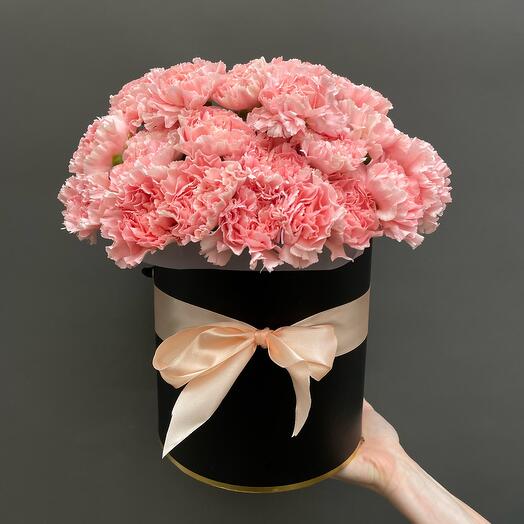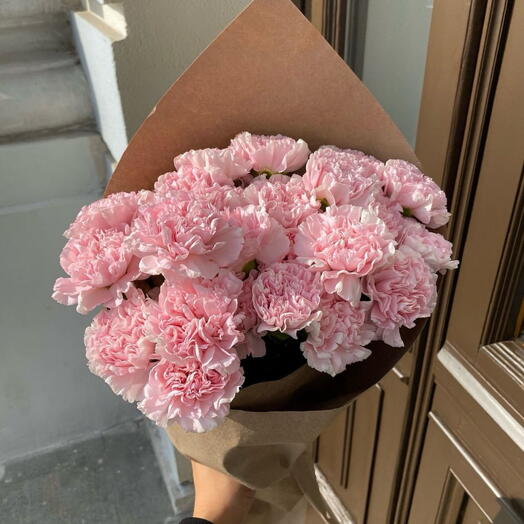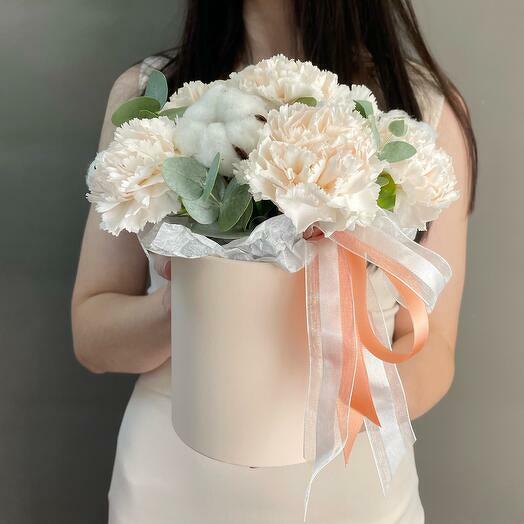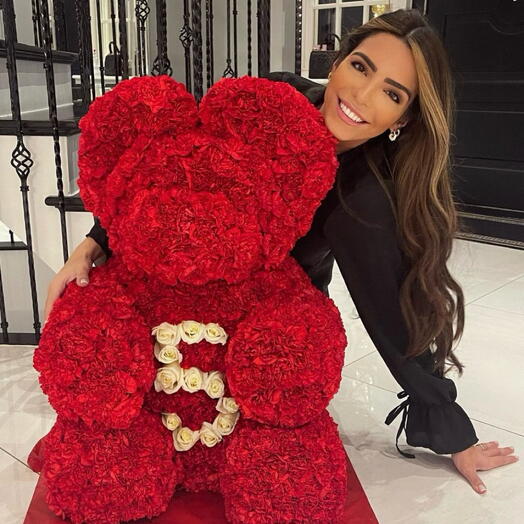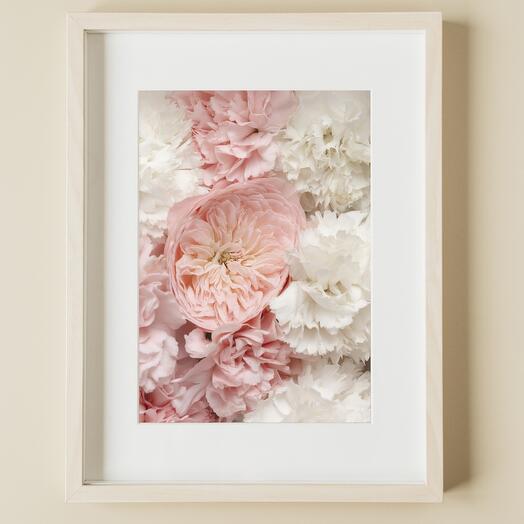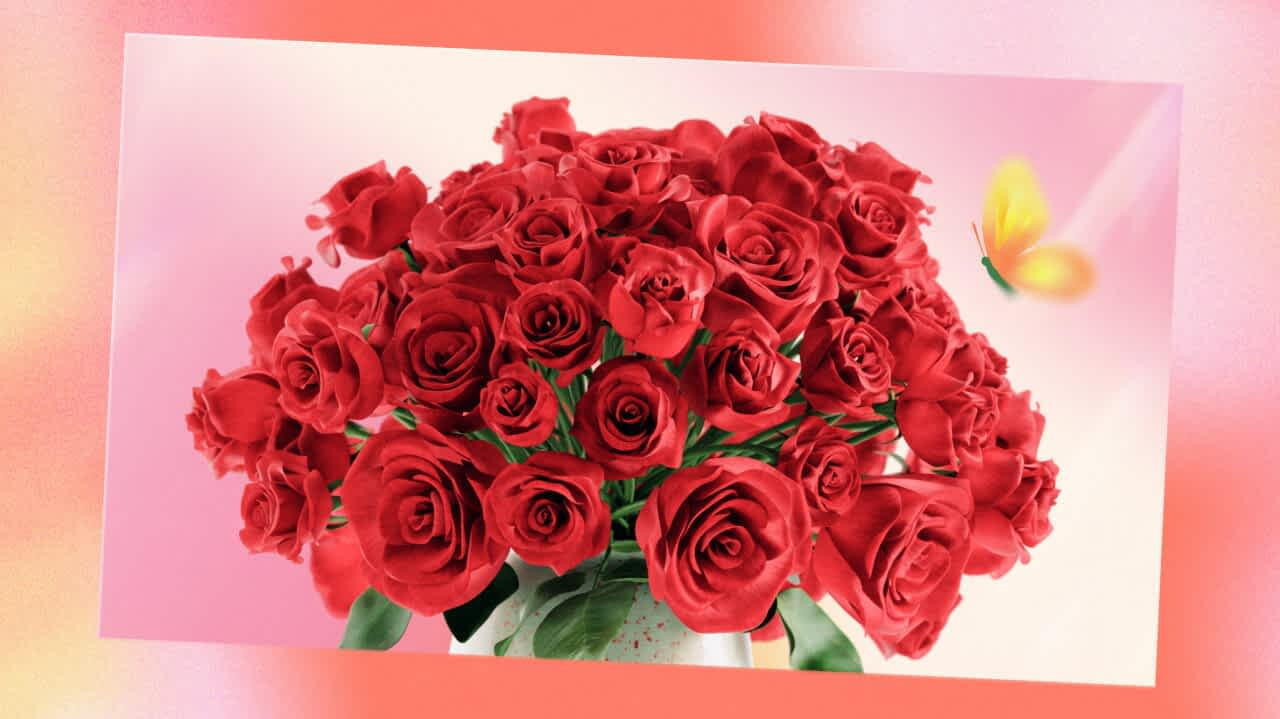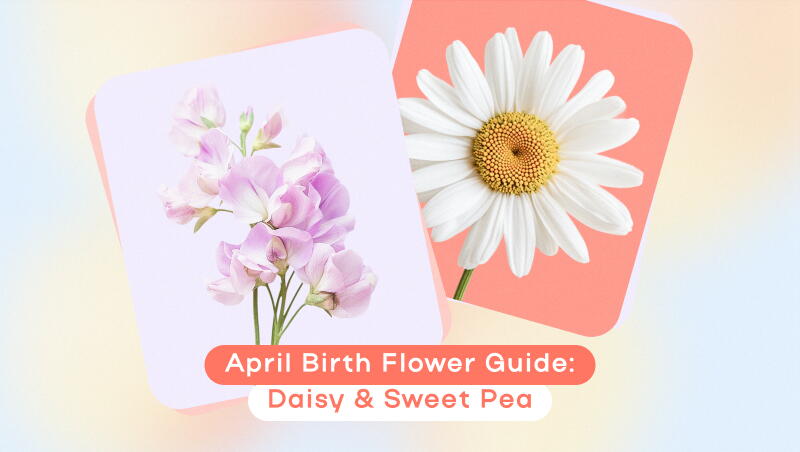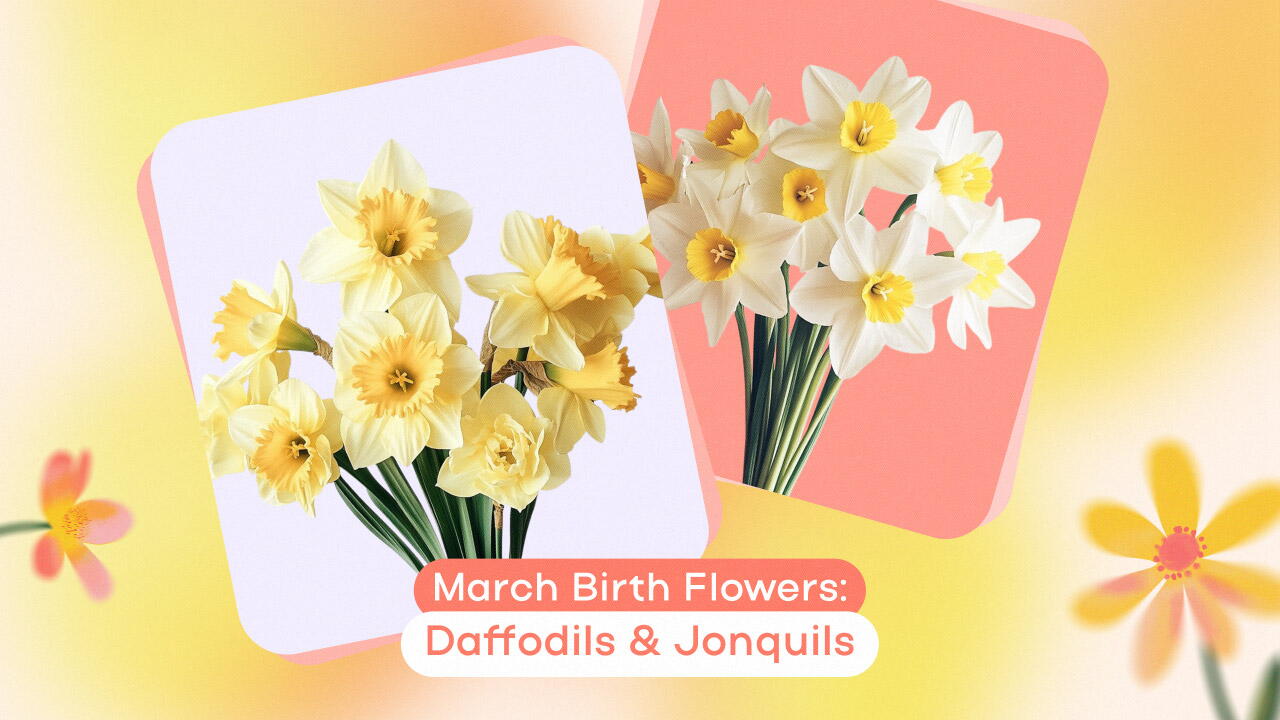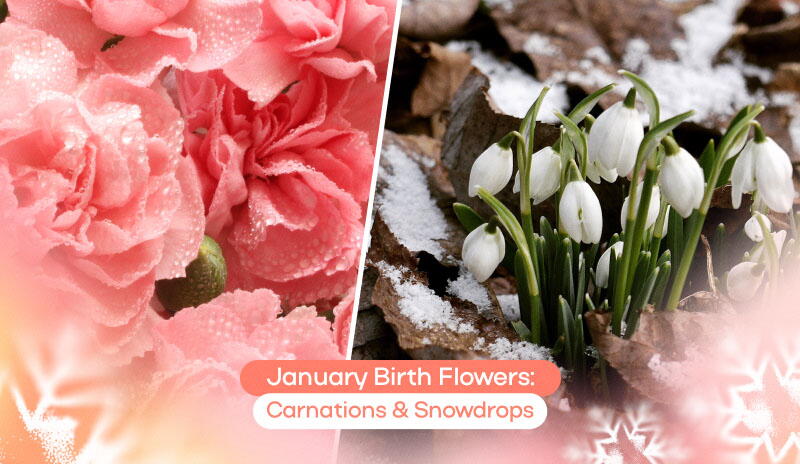
Wondering what’s a January birth flower? Find the answer in today’s article! Discover what flowers represent January, along with their fascinating history, rich symbolism, and intriguing facts about these enchanting blooms. Plus, check out some lovely gift ideas for those born in this chilly month!
What are the January flowers?
In January, the flowers of the month are elegant carnations and gentle snowdrops. These lovely blooms are praised for their resilience and strength, making them ideal representations of this snowy time of year.
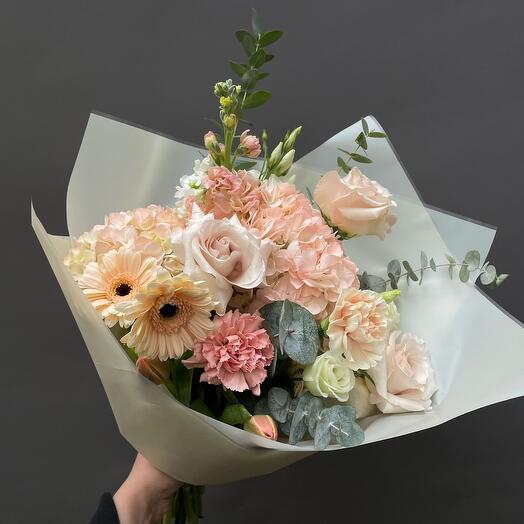
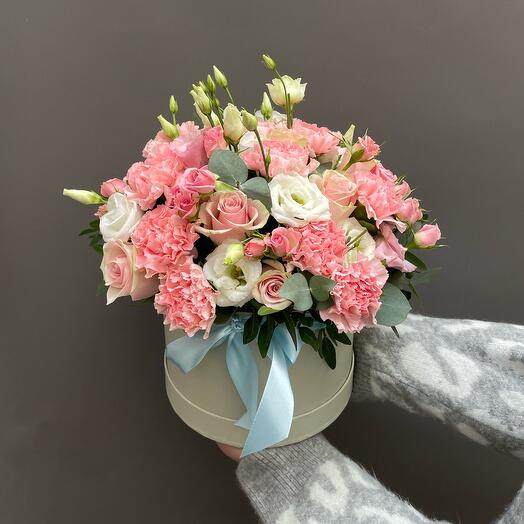
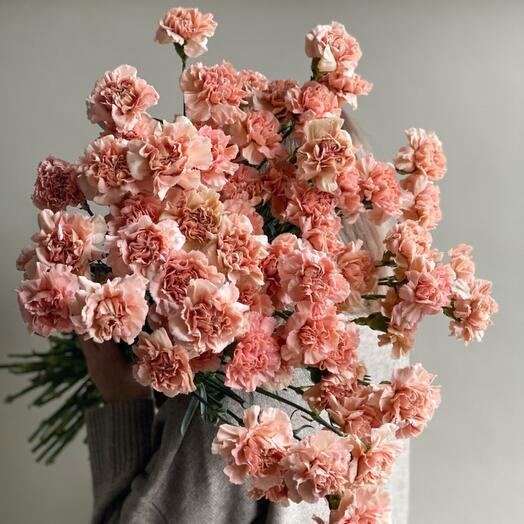
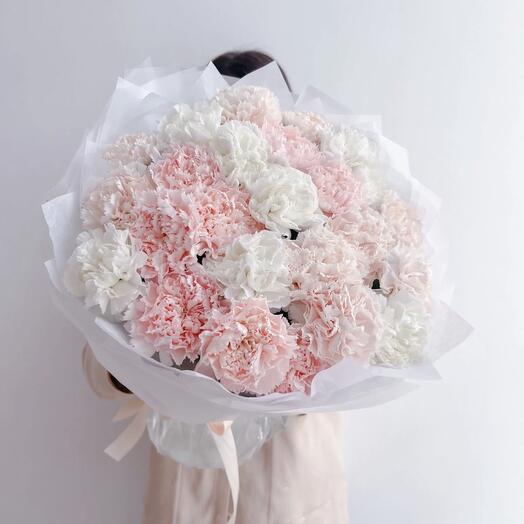
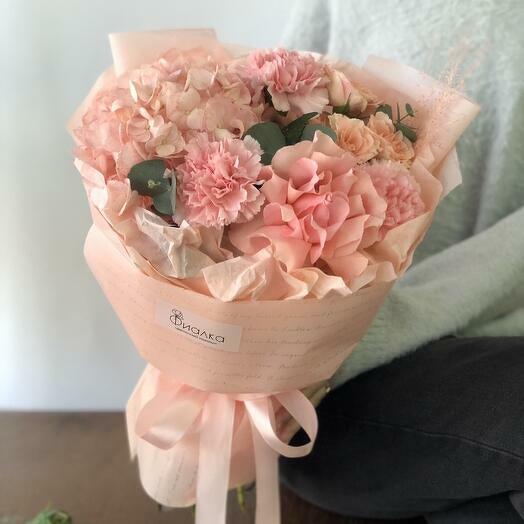
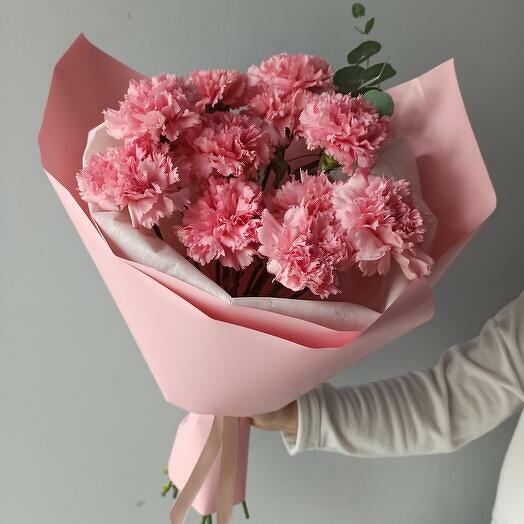
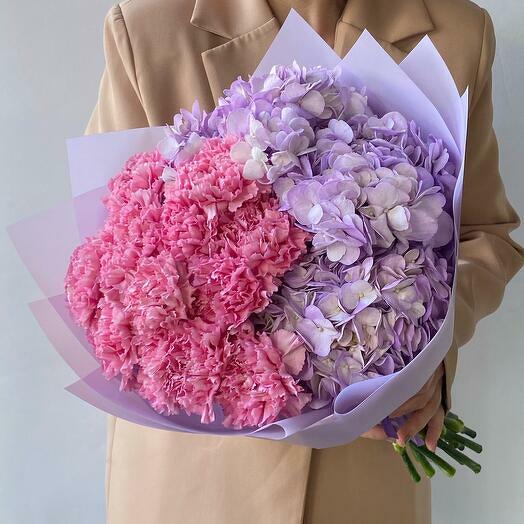
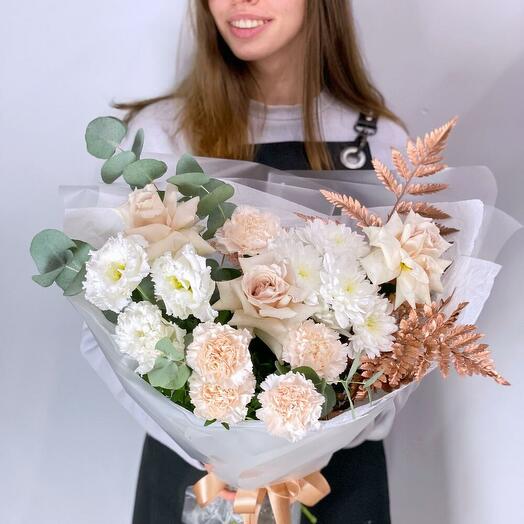
The first January birth flower: Carnation
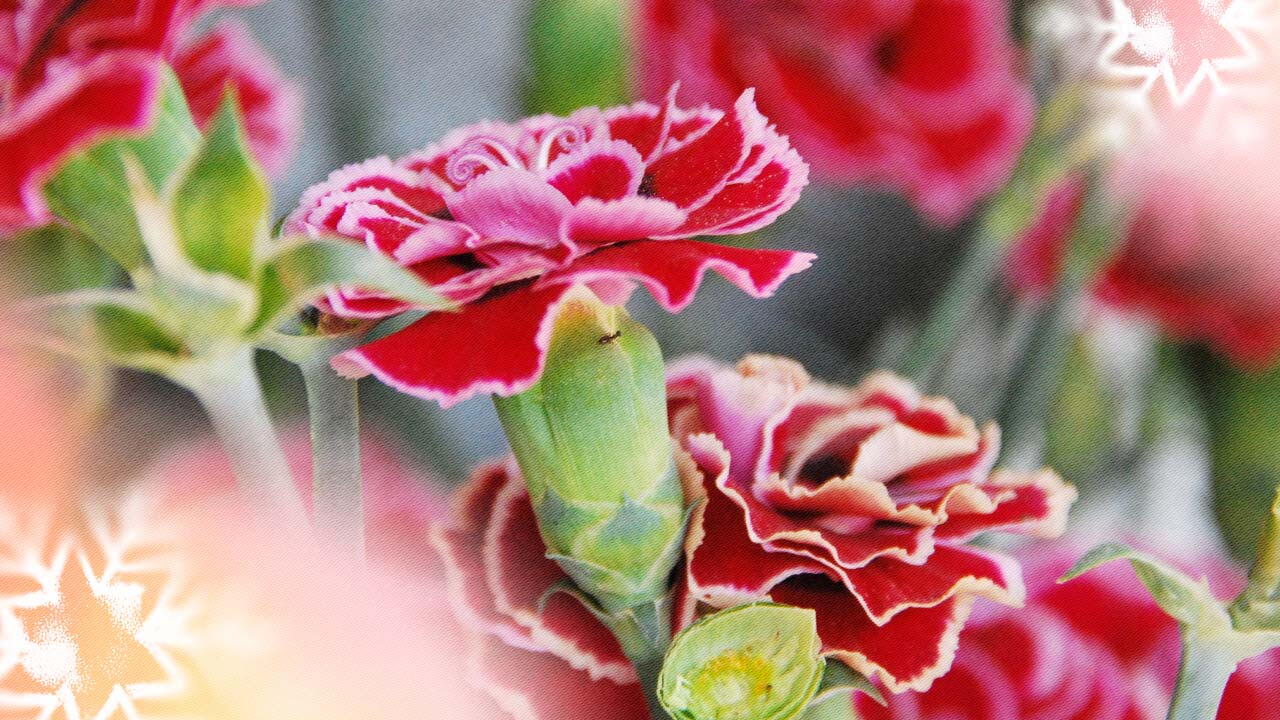
The magnificent January flower, the carnation, boasts rich layers of fringed petals that come in various colours, ranging from soft pastels to bold hues, and a delightful, spicy fragrance. This herbaceous perennial typically grows between 30 and 60 cm and thrives best in temperate climates, where it enjoys moderate conditions and plenty of sunlight. Appreciated for its durability, the plant is a favoured addition to gardens as well as floral arrangements.
Meaning
The meaning of this January birth flower encompasses a variety of themes, from affection and devotion to gratitude and good fortune. Most notably, it embodies love in its diverse expressions – whether reflecting the unique bond between a parent and child, the ardour shared by romantic partners, or the warmth of friendship.
History
Over 2,000 years ago, this flower was already admired, with the ancient Greeks and Romans being the first to mention it in their writings. Originating in the Mediterranean, carnations soon found their way to various corners of the world, becoming beloved across many cultures. Their timeless appeal continues to endure, making them one of the most widely cultivated flowers to this day.
Care tips
These blooms are as charming as they are low-maintenance, offering a stunning display for up to three weeks. Simply trim the stems at a sharp angle with a clean tool and refresh the water in the vase regularly. Place your flowers in a cosy spot, away from fruits, heat, and drafts, and they’ll reward you with a delightful and lasting presence.
Interesting facts
- Did you know that these plants with pearl-white petals were chosen as the symbol for Mother’s Day? They epitomise the unwavering strength and endless care of a mother’s love – love that shines brightly through every moment of life’s ups and downs
- With over 300 breathtaking varieties, carnations offer an incredible range of hues and styles, each one more enchanting than the last. Whether you’re looking for a timeless classic or something truly distinctive, these blooms are certain to captivate
- The plant’s scientific name translates from Greek as a ‘divine bloom’ – a description it truly embodies!
When are carnations in season in the UK?
These refined plants grace the landscape with their blooms from May to September, depending on the variety. Fortunately, cut flowers can be found in florists’ shops for most of the year, ensuring their beauty is always within reach.

The second January birth flower: Snowdrops
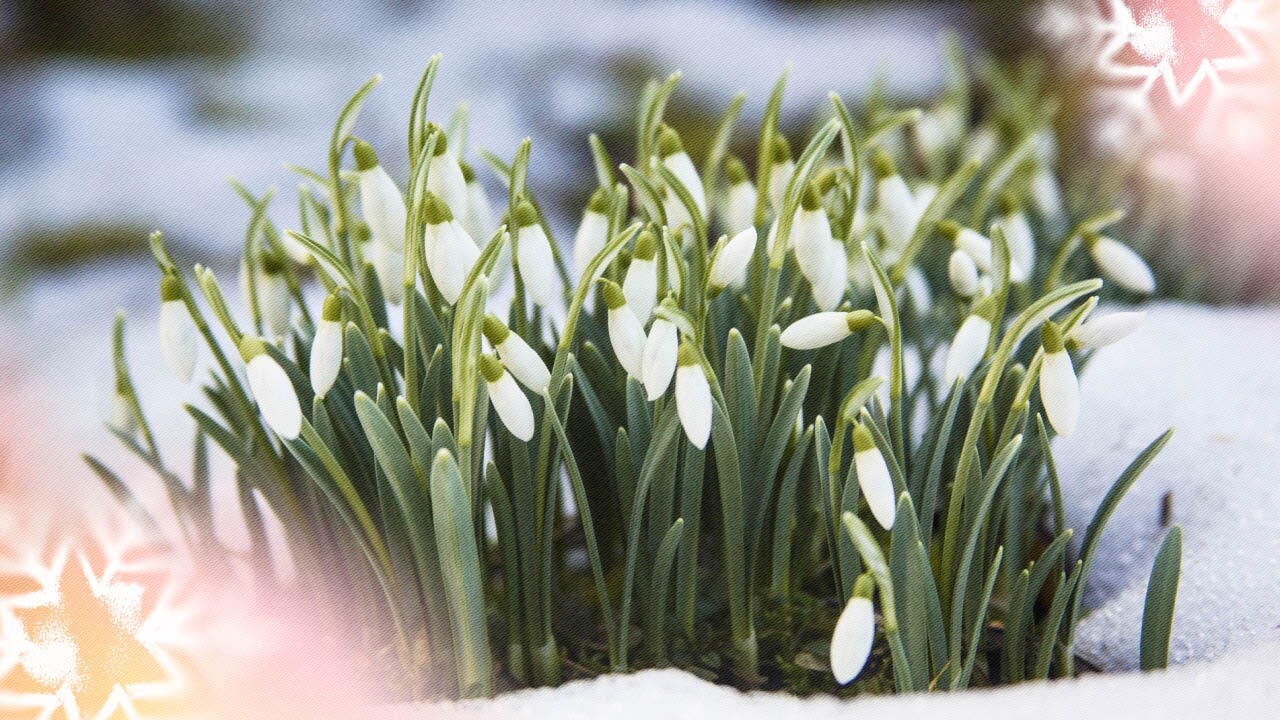
Another birth flower for the month of January is the graceful snowdrop. This early bloomer grows to heights of 8-16 cm, showcasing lovely pure white petals that dangle delicately like miniature bells, gently swaying in the breeze.
Meaning
Heralds of spring, snowdrops epitomise the promise of brighter days and the resurgence of life. They are symbolically linked to the concepts of virtue and simplicity. Thriving in the coldest months, these adorable blooms prove that strength and beauty go hand in hand.
History
With a history dating back to antiquity, this enchanting flower has been believed to attract good fortune, protect against malevolent forces, and alleviate pain and fever, as attributed in various cultural traditions. Since the 18th century, it has gained widespread popularity as an ornamental plant, celebrated for its unique appeal and elegance in gardens and natural settings.
Care tips
Enjoy the quiet sophistication and delightful, honeyed scent of these blooms by encouraging them to flower indoors:
- The process is quite simple – start by planting four bulbs 2.5 cm deep in the soil of a 10 cm container
- Keep the pot in a temperature range of 1 to 6°C for about 10-12 weeks, usually in a fridge or cool cellar, mimicking natural winter conditions
- Once the buds appear, move the container to a bright, cool indoor location, ensuring the compost remains sufficiently moist
Interesting facts
- Some varieties of this plant contain a substance that aids in the treatment of Alzheimer's
- Another compound acts as a natural anti-freeze, allowing these remarkable flowers to survive the cold and recover when the temperature rises
- In Ancient Greek, the scientific name of the plant translates to ‘milk flower’, likely alluding to its pristine white petals
When are snowdrops in season in the UK?
In the UK, these January flowers start blooming in winter and continue into early spring. Typically reaching their peak between January and March, they offer a serene contrast to the still-wintry surroundings.
What do the January birth flowers say about your personality?
Both blooms representing this time of year are known for their resilience, reflecting your remarkable adaptability, strong inner character, determination, dignity, and perseverance. Moreover, your heart is a source of unwavering love that remains steadfast even when the world around you feels unpredictable or challenging. Those you hold dear are truly fortunate to have you in their lives, as your genuine kindness and generous support make them feel cherished, valued, and profoundly treasured.
Tattoos Inspired by January birth flowers
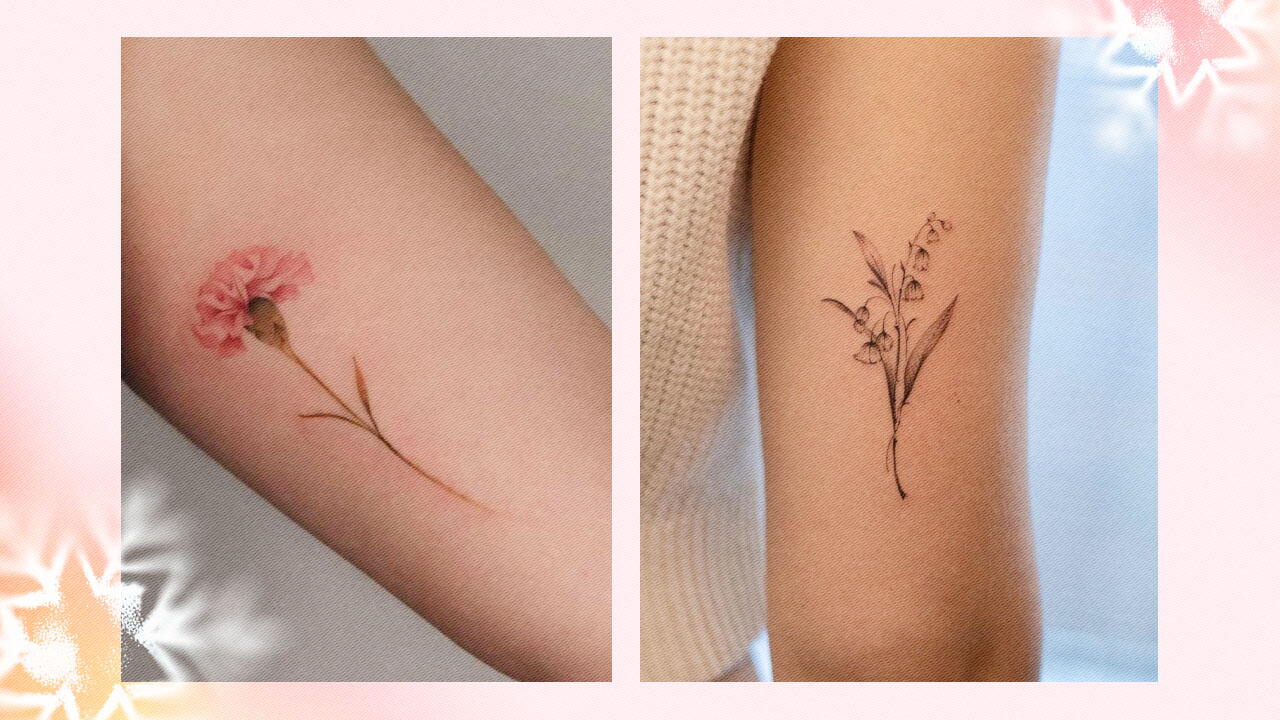
Tattoos featuring floral symbols of this frosty month blend understated elegance with rich symbolism. Carnation tattoos convey affection, admiration, and gratitude towards someone special while also symbolising fortitude and bravery – a meaningful tribute to those who have triumphed over life’s toughest challenges. Similarly, a snowdrop tattoo offers a powerful yet minimalist expression of perseverance, marking the start of a new journey and the promise of transformation.
What are the best gifts besides flowers for January birthdays?
In addition to the exquisite January flowers, birthday gifts that radiate warmth and tenderness include jewellery adorned with the season’s birthstone – the sophisticated garnet. With its deep, rich red hue, it epitomises affection, commitment, and strength, serving as a cherished reminder of a special day. Other wonderful options encompass refined home decor, lush live plants, luxurious self-care essentials, and, of course, scrumptious desserts.

